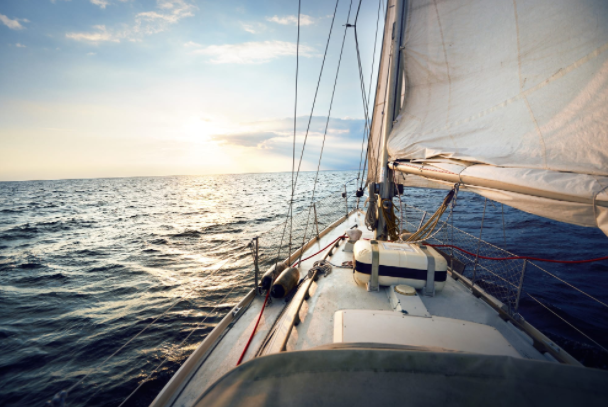Sustainable and Lightweight Materials in Modern Sailboat Design

Introduction to the Use of Sustainable and Lightweight Materials in Sailboat DesignThe maritime sector has undergone a remarkable transformation with the incorporation of sustainable and lightweight materials in sailboat design. This trend not only aims to optimize the performance and efficiency of these vessels but also seeks to reduce the environmental impact associated with boat construction and maintenance. The choice of these materials aligns with the increasing demand from consumers for eco-friendly products and the industry's commitment to sustainability.Key Sustainable Materials Used in Boat DesignIn the effort to reduce ecological footprints, sailboat designers have turned to innovative materials that are both lightweight and environmentally friendly. Some of these materials include:
- Natural fibers: Materials such as flax, hemp, and bamboo are increasingly being used as sustainable alternatives to synthetic fibers. These materials are not only biodegradable but are also lightweight and possess strength properties that make them suitable for sailing.
- Eco-resins: Resins derived from plants or biological sources are used instead of traditional synthetic resins. These eco-resins are less harmful to the environment and reduce dependence on fossil fuels.
- Certified wood: Wood from sustainably managed sources, certified by organizations such as the FSC (Forest Stewardship Council), remains a popular material due to its durability, beauty, and complete renewability.
- Recycled composite materials: The use of recycled composites is gaining ground in boat construction, helping reduce waste and encouraging a culture of reuse among boat builders.
Benefits of Lightweight and Sustainable Materials in SailboatsThe integration of lightweight and eco-friendly materials in sailboat construction brings multiple benefits, not only from an environmental standpoint but also in terms of the boat's performance. The main benefits include:
- Improved performance: Lightweight materials enhance the boat’s maneuverability and speed. This is especially important in sailing races, where speed and wind efficiency are crucial.
- Reduced fuel consumption: Less weight means less resistance to movement, which translates into reduced fuel consumption in boats that use engines for certain maneuvers.
- Reduced environmental impact: Using sustainable materials helps decrease the carbon footprint of boat construction. Additionally, due to their biodegradable or recyclable nature, these materials contribute to reducing the waste generated at the end of the boat's life cycle.
- Reduced maintenance: Many sustainable materials require less maintenance than traditional materials, which can result in significant savings over time.
Challenges in Adopting Sustainable Materials in Boat ConstructionDespite their benefits, the transition to sustainable materials is not without challenges. The main obstacles include:
- Initial costs: Sustainable materials can be more expensive than their traditional counterparts, which may be a barrier to their adoption, particularly for small builders or shipyards with limited budgets.
- Availability of materials: The availability of some sustainable materials can be limited, which may impact boat production and delivery times.
- Resistance to change: There is inherent resistance to change in any industry, and the maritime sector is no exception. Convincing shipyards and clients of the advantages of these materials may require significant marketing and educational efforts.
ConclusionThe adoption of sustainable and lightweight materials in sailboat design is a trend that not only responds to the need to protect our environment but also offers significant advantages in terms of performance and long-term costs. Although challenges exist, the growing awareness of sustainability and ongoing technological advancements continue to open new doors for innovative solutions in the construction of more efficient and planet-friendly sailboats.


